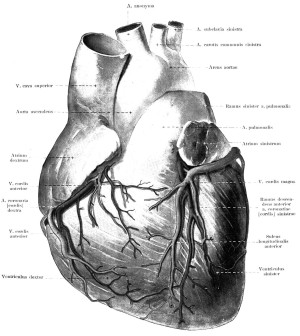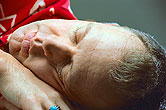- 10 Strategies to Overcome Insomnia
- Could Artificial Sweeteners Be Aging the Brain Faster?
- Techniques for Soothing Your Nervous System
- Does the Water in Your House Smell Funny? Here’s Why
- Can a Daily Dose of Apple Cider Vinegar Actually Aid Weight Loss?
- 6 Health Beverages That Can Actually Spike Your Blood Sugar
- Treatment Options for Social Anxiety Disorder
- Understanding the Connection Between Anxiety and Depression
- How Daily Prunes Can Influence Cholesterol and Inflammation
- When to Take B12 for Better Absorption and Energy
Naps May Do a Heart Good


Taking a midday nap might be beneficial for your heart, new research suggests.
The investigators looked at how an hour-long siesta at noon affected blood pressure among nearly 400 middle-aged people with high blood pressure.
The result: those who napped saw their systolic blood pressure reading (the number on top of the standard blood pressure ratio) drop an average of 5 percent over the course of the day, compared with patients who didn’t rest.
More specifically, the team found that nappers saw their blood pressure readings fall by 4 percent during the day and by 6 percent while sleeping at night.
“Although the mean BP [blood pressure] decrease seems low, it has to be mentioned that reductions as small as 2 mmHg in systolic blood pressure can reduce the risk of cardiovascular events by up to 10 percent,” study author Dr. Manolis Kallistrato, a cardiologist at Asklepielon Voula General Hospital in Athens, said in a European Society of Cardiology news release.
Kallistrato and his colleagues presented their findings Saturday at a meeting of the European Society of Cardiology in London. Research presented at medical meetings is considered preliminary until published in a peer-reviewed journal.
In all, the study involved about 200 men and 186 women, with an average age of just over 61.
The finding appeared to hold up even after accounting for a variety of factors that can affect blood pressure, including smoking history, salt, alcohol and coffee intake, and activity routines, the researchers said.
Napping was also linked to a reduction in the size of the left atrium section of the heart, as well as a more than 10 percent drop in so-called “pulse wave velocity” levels. Pulse wave velocity measures the stiffness of arteries.
“These findings suggest that midday sleepers have less damage from high blood pressure in their arteries and heart,” Kallistrato said.
The research can only point to an association, however, and it does not prove that naps will curb heart disease.
According to Kallistrato, “our study shows that not only is midday sleep associated with lower blood pressure, but longer sleeps are even more beneficial… We also found that hypertensive patients who slept at noon were under fewer antihypertensive medications compared to those who didn’t sleep midday.”
More information
There’s more on high blood pressure at the American Heart Association.
Source: HealthDay
Copyright © 2026 HealthDay. All rights reserved.










